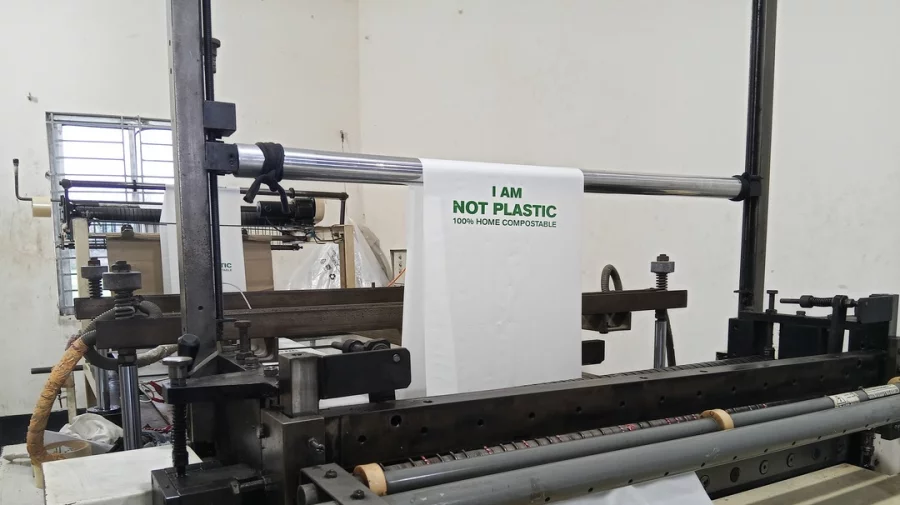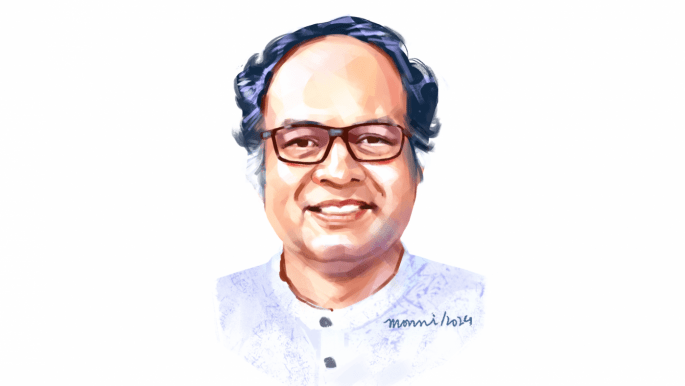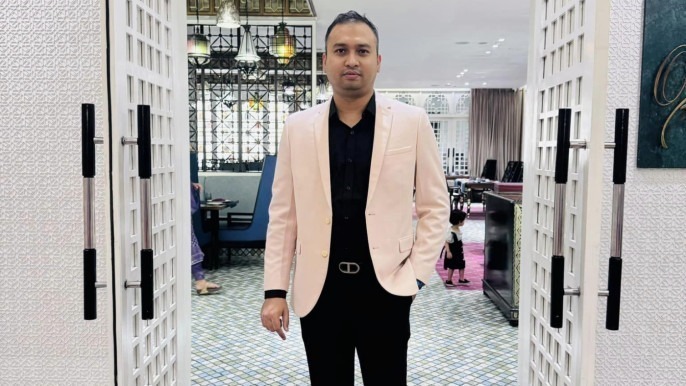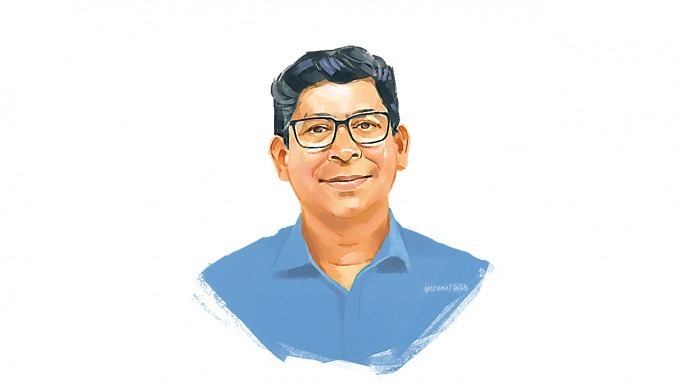Bangladesh needs eco-friendly alternatives to truly tackle plastic pollution

The Ministry of Environment has announced a ban on polythene bags starting November 1. Various supermarkets and fresh produce markets are prioritizing bags made of cloth, paper and jute as alternatives to polythene.
But what’s the alternative for carrying fresh fish, meat and other liquid products?
To address these concerns, Easy (Ever Green) bags, made from corn starch, are ready to serve as a solution.
Ecospear, an eco-friendly polythene manufacturing company, was founded in 2018 by Mohammad Rayhan with a single mission: to make Bangladesh plastic-free. In an exclusive interview with Dhaka Tribune’s Shamima Rita, the founder and chairman, Mohammad Raihan, discussed Ecospear and the Easy bag in detail.
Dhaka Tribune: Why did you choose to enter the eco-friendly polythene business over other businesses?
Mohammad Raihan: The main reason behind founding Ecospear was the idea of a plastic-free environment. Back in May 2016, when I was living in Halishahar, Chittagong, Cyclone Roanu completely flooded the coastal areas. Amid this disaster, a pregnant neighbour of mine went into labour, but the roads were submerged, and it took an hour to reach what was usually a 15-minute drive. Unfortunately, the baby didn’t survive. This incident hit me hard, especially as my wife was also pregnant at the time. When the water receded a bit, I saw polythene bags clogging drains, streets, and canals—the main cause of the waterlogging. Simply banning polythene isn’t enough; alternatives are needed. That’s when I decided to found Ecospear to produce an environmentally friendly alternative to polythene.
How did Ecospear get its start?
I started by researching polythene alternatives used in other countries. Visiting eco-friendly factories in countries like Indonesia, Sweden and China, I was intrigued by the making of polythene from sweet potato starch. Later, in 2018, I began producing locally sourced, eco-friendly polythene from Indonesian cassava (manioc). However, due to high production costs, it didn’t gain popularity in the local market, though it was in demand internationally. My main goal, however, was to contribute locally, so I focused on producing a low-cost alternative to compete with plastic.
How did you come up with the idea of making Easy polythene bags from corn starch?
I wanted to do something for my country. Producing an alternative to plastic and expanding its market requires bags at the same or lower price than plastic bags. This led me to corn starch. Since corn is readily available in the country, production costs can be reduced by using domestic raw materials.
Why is the Easy polythene bag environmentally friendly?
The main ingredient is derived from the yellow, firm base of the corn, a natural and discarded part, which means no valuable resource is being used. This portion is processed into resin, then shaped into polythene by using machines. While plastic can take 400-500 years to decompose, 30-micron bags made from corn take only 90 days to biodegrade. Burning it produces ash, and when placed in hot water, it liquefies within 1-2 minutes. The bag is certified as 92-95% environmentally disposable by BCSIR lab tests, which confirm it contains no plastic.
Can Easy bags be used as a substitute for jute, cloth, or paper bags?
They’re not a substitute but an ideal supplement. It’s difficult to carry fish or meat in jute or cloth bags, especially on public transport like the metro. Easy bags are a viable alternative to polythene. You can even store fish or meat in them in the fridge, and they’re reusable and biodegradable. Compared to jute, cloth, or paper bags, Easy bags are also more affordable. Leading supermarkets in Bangladesh have already placed orders for around 500 tons, and we’re selling these bags for Tk5 to 15 each, depending on size and type.
The Easy bag is relatively expensive. Why should the general public switch to it?
The cost is lower than cloth or jute bags, and we’re trying to bring it closer to the price of polythene bags. However, our production costs are 4-5 times higher than polythene bags, and although their resin imports are tax-free, we have to pay up to 51% in taxes and VAT. If this were reduced, our production costs—and hence bag prices—could also come down.
To what extent can Ecospear meet the demand for Easy bags?
We produce around 6 to 7 tons daily, roughly 70 tons a month. International demand is high, with 80% of our production going abroad to North America, the UK and Germany. Some Bangladeshi companies are now also placing orders. We’re also experimenting with cutlery made from tea leaves (discarded after tea production) and rice husks, with plans to bring it to the market next year.
How do you feel about the complete ban on polythene starting November 1?
It’s a great initiative, but there must be alternatives. Otherwise, it will be hard to remove polythene. Jobs also need to be found for polythene business workers. With some technical changes, polythene factories can be transformed into eco-friendly polythene production at a very low cost. We, who work with eco-friendly polythene, can help with this transition.
Any message for the government and environmental stakeholders?
For those of us working for the country and producing eco-friendly products, environmental licenses and approvals should be made easier and quicker. After six years, eco-friendly polythene still hasn’t been approved in Bangladesh, despite interest from foreign brands like Pebble Child, Neena, Freddy and Ohpolly. I can’t yet work domestically due to the lack of approval.
Any message for entrepreneurs working with eco-friendly products?
Absolutely. By working together, we can achieve the goal of a plastic-free Bangladesh. The government’s environmental departments also need to be beside us as collaborators.
Source: Dhaka Tribune | 2 November 2024 | Author: Shamima Rita






